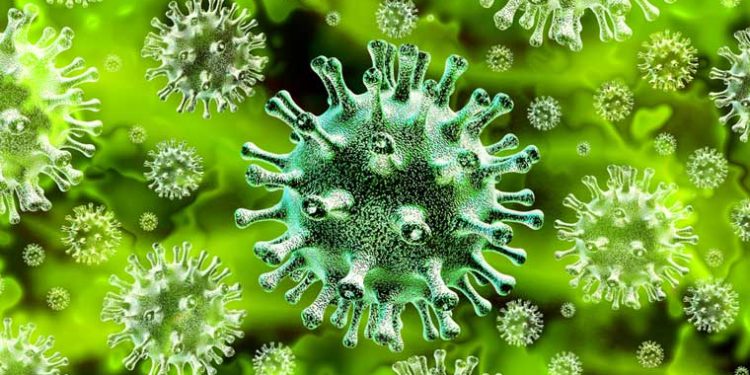New Delhi: Coronavirus disease is very highly transmissible — a short conversation with someone exhibiting no symptoms whatsoever can release a high volume of viral particles within respiratory droplets that can easily lead to infection.
In an email interview with IANS, Jeffrey Townsend, Elihu Professor of Biostatistics and Ecology & Evolutionary Biology at the Yale School of Public Health, Yale University said it seems it would be a long battle against COVID-19 — nothing reassures us that we are anywhere near “herd immunity” in any nation. There are no easy answers.
He insisted, theoretically, testing and contact tracing on a massive scale can suppress this virus, and we have seen it work in practice in countries such as South Korea. And, there is no data currently available that persuasively argue that there are strain-specific differences among SARS-CoV-2 viruses, which led to more deaths, added Townsend.
Here are excerpts from the interview:
Q: India has more 100,000 cases, when do you think the peak will come. What is the number of cases, based on India’s population, sufficient to say the peak has arrived?
A: I think that at this point thinking that everything is about the “peak” is frankly an oversimplification — it is an abstraction that emerges from the simple models that we as epidemiologists have to use, and a material reality of data that will not likely manifest in so simple a curve as our models predict. India has already taken dramatic actions to combat the spread, and it will continue to do so. Tensions between economic interests and the interests of public health will play out in decision-making at all levels: if these decisions are wisely made, infection will be suppressed and calls for reopening and increasing economic activity will grow louder. If the virus then rebounds, calls for action to preserve the public health will redouble. Depending on the responses that occur and their timescale and their locality, we will see restoration or resurgence. It will unfortunately be a long battle — nothing reassures us that we are anywhere near “herd immunity” in any nation. There are no easy answers.
Q: Currently, India’s testing capacity is nearly 100,000, a day. Do you think it is sufficient in the backdrop of India’s population?
A: The pillars of public health practice needed against this virus are social distancing, contact tracing and testing, treatment, and vaccination. We need all of these pillars in operation, but we currently only have social distancing and testing. Because extensive transmission of this virus occurs before symptoms appear, testing those who do not yet show symptoms is incredibly important, and the more we can do, the better off we are. Theoretically, testing and contact tracing on a massive scale can suppress this virus, and we have seen it work in practice in countries such as South Korea. Unfortunately, we have also seen how hard it is to maintain vigilance, and how quickly this virus can resurge.
Q: Currently, India has a low fatality rate, which is 3.2 per cent, and lowest cases per hundred thousand population, around 7.1 cases. Do you think, with a population of 1.3 billion people, these statistics show a positive sign in India’s fight against coronavirus, or it may get worse?
A: They are a good place to start. However, viruses replicate as they infect, so unlike other kinds of threats, a low level of virus now does not augur a low level of virus later — quite the opposite. India, in particular, must pay attention not just to national or regional statistics, but to the demographics of disease: how are its elderly, its immune-compromised, its sick, and its poverty-stricken faring with this disease? They are at risk, and when they are at risk, so is everyone.
Q: Since the beginning of May, India has seen an extraordinary increase in the number of positive coronavirus cases, it started around 2,000 cases in a day and now it is 5,000, do you think these are signs of community transmission, or India, at over 100,000 cases, is yet to get into Stage 3?
A: This disease is very highly transmissible — a short conversation with someone exhibiting no symptoms whatsoever can release a high volume of viral particles within respiratory droplets that can easily lead to infection. I am sure that this mode of transmission is ongoing within communities in parts of India. The only way to combat the risk across all of India is to combat the risk in all of India — and likewise, in all of the world.
Q: Some states in India have reported many deaths due to the viral infection. Initially, many experts pinned the blame on the L strain of the coronavirus, but it is yet to be established. Has this strain been responsible for deaths in the US too?
A: There is no data currently available that persuasively argue that there are strain-specific differences among SARS-CoV-2 viruses. Most stories regarding these differences are likely the product of wishful thinking or fear-mongering. If you are wondering if you should be concerned for yourself, your family, or others around the globe, the answer is that yes, you should be concerned. This virus does not concern itself with geography, nation, race, or strain, nor should you.
Q: Do you think with our limited experience with this viral infection, we have key information on the virus — whether people will develop lasting antibodies to protect them from this infection?
A: There are two answers to this question. The first is that we simply do not know which is legitimate to say because data on this specific virus that would answer that question do not exist yet. However, there is a second answer — also legitimate — which is that SARS-CoV-2 is evolutionarily closely related to SARS, MERS, and the beta-coronaviruses that cause “common colds”, and is unlikely to have evolved a dramatically different relationship with our mammalian immune system. These other viruses confer short-term immunity on the order of 40 weeks, possibly long-term immunity as long as 2-3 years. Until we learn otherwise, we should expect approximately the same time course of immunity from this virus.
IANS






































